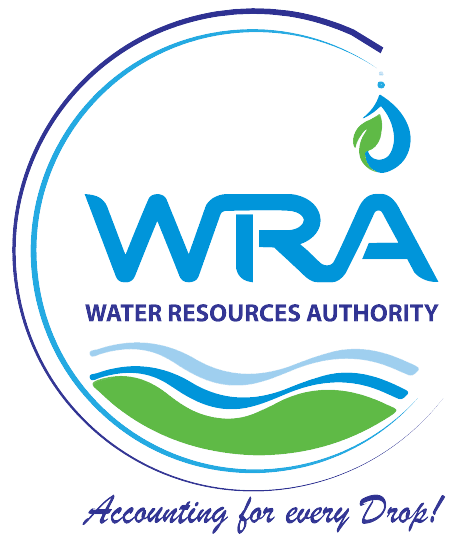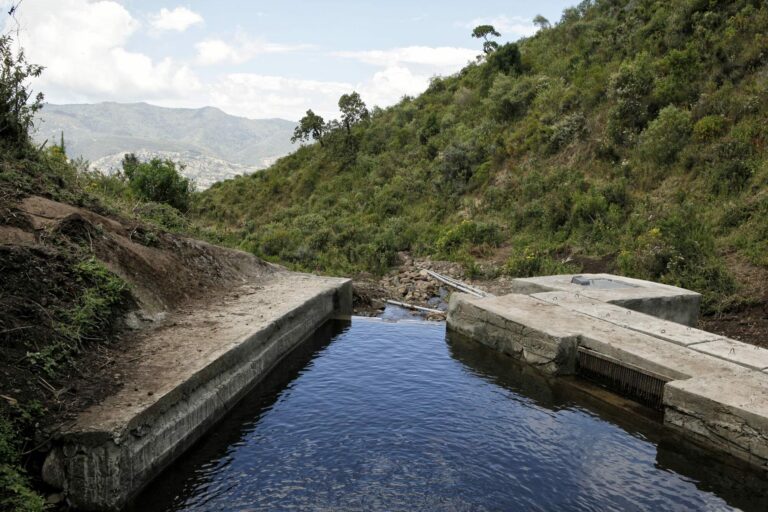WRA operates a permit database that stores, processes and gives information on the status of water allocated for various uses.
Permitting considers the different classes of water resources divided into four categories: Category A is reserved for social water while classes B, C, and D are based on the level of economic water use where the user pays for the amount of water used.
The reserve is set to guide allocation so that during all season’s priority is given to basic human needs and the environment.What is permitting?
Permitting is a process through which WRA regulates water abstractions for different uses while ensuring equitable sharing. The process involves submitting an application, giving an authorization to construct abstraction works followed by issuance of a water permit Who Owns Water Resources Pursuant to Sec. 5 of the Water Act 2016, every water resource is vested in and held by the National Government in trust for the people of Kenya, subject to any rights of the user granted by or under the Act.Why Do I Need A Permit?
To account for water resources To ensure equitable sharing of water resources For abstracting water where works are involvedWhat is an authorization?
Authorization is an intermediary stage in permit processing that provides for water abstraction works to be put in place and other conditions fulfilled before a permit is issued. The users are therefore obliged to provide feedback to WRA before they are permitted to use water. Abstracting water with authorizations is illegal.Who Issues A Water Permit?
WRA through a total of 33 offices located at the sub regional, regional and national levels on behalf of the National Government. The process involves stakeholder participation at all the levels What Is A Permit? A permit is the document giving a water user permission to use waterHow Can I Be A Compliant Water User?
Install controlling and measuring devices Be in possession of valid permits Pay all the charges for water use and on time Abstract water within allocated thresholds Use water for permitted activities Collaborate with WRUAs to mitigate water use conflicts Apply for extensions in cases of expired authorizations Renew expired permits on time Apply and legalize illegal abstractions Where river flows are currently high, water users are encouraged to store and use water sparingly. All water users are urged to report to the Authority any observed misuse of our water bodies. The Permitting Process begins when an application for a water permit is received and ends with the issuance of a water use permit. This permit is renewable every 5 years. Permitting process is done manually through the various application steps, as well as electronically through the Permit Database.Step 1:
Receipt of an Application for Water Use Permit An application is received together with the attachments and verified as per the Application Check List. Attachments include Hydrological/Hydrogeological Assessment reports. If requirements are met, assessment fees paid as per category of the application. Applicant to be notified if requirements are not met.Step 2:
Application Entered into the Permit Database The application is entered into the Permit Database where a unique file number containing WRA/Basin area code/Sub region/Sub Basin number/Application number/initial determining whether the application for Surface water (/S), groundwater (/G), effluent discharge (/E) or Swamp Drainage (F).Step 3:
Public Notification of the Application as Per Water Resources Management Rule 29. Application is subjected to public notification; site verification undertaken by WRA.Step 4:
Technical Evaluation of the Applications Application is evaluated by the Technical Evaluation Committees (TECs) at the 6 regional offices.Step 5:
Issuance of Authorizations to Construct Works
- Category A Approvals issued
- Category B Authorizations issued
- Categories C and D applications evaluated by Basin Area Advisory Committees (CAACs)
- If approved, Category C Authorizations issued at the regional offices while category D forwarded to WRA headquarters for further evaluation by the Headquarter TEC
- If approved Category D Authorization issued
Step 6:
If Works are constructed as authorized, then proceed to Step 7 • If not constructed apply for extension of Time Limit to AuthorizationsStep 7:
Submission of Requirements For Issuance Of Water Use Permits • Completion Certificate • Borehole Completion Record (applicable to Ground Water applications only), Water quality analysis report, collection of Water abstraction permit fees as per category of application.Step 8:
Final Inspection of Constructed Works WRA technical officers carry out inspections to verify construction as per the authorized conditions.Step 9:
Permit Issuance Water use permits issued for categories B, C and D applications or varied as per the Recommendations of the inspecting officer and subsequent payments.Step 10:
Permit Renewal • Collection of permit renewal fees per category of permit. Are there offenses in permitting that contravene Water Resources Management Rules 2007 and Water Act 2016? Yes.
The following offenses are punishable by law:
- Obstructing /Abstracting water beyond permitted thresholds
- Irrigating beyond permitted thresholds
- Illegal drilling without authorizations from WRA
- Using water with an Authorization instead of a permit
- Pumping water from boreholes beyond permitted thresholds
- Supplying water with domestic permits
- Practicing without professional licenses
- Dumping soil, effluent, solid waste materials in undesignated areas
- Uncontrolled sand harvesting
- Discharging untreated effluent to a water body in contravention with Effluent Discharge Control Plans
Failure to irrigate using storage thereby depleting reserve flow /direct abstraction by irrigators instead of irrigation from their storage What powers does Water Resources Authority have in enforcing the rules and regulations?
- Disconnecting their water systems
- Demolitions and destruction of illegal infrastructure at owner’s cost
- Confiscating of water pumps or any other equipment used to divert water
- Cancellation of permits
- Enforce restoration conditions
Prosecution What role do I have to play in complying with WRM Rules 2007 and Water Act 2016? You must adhere to the following:
- Be in possession of valid permits
- Pay water use charges on time
- Abstract water within permitted thresholds
- Use water for permitted activities
- Collaborate with WRUAs to mitigate water use conflicts
- Apply for extensions in cases of expired authorizations
- Renew expired permits
- Apply and legalize illegal abstractions
- Where river flows are currently high, water users are encouraged to store and use water sparingly.
- All water users are urged report to the Authority any observed misuse of our water bodies.

